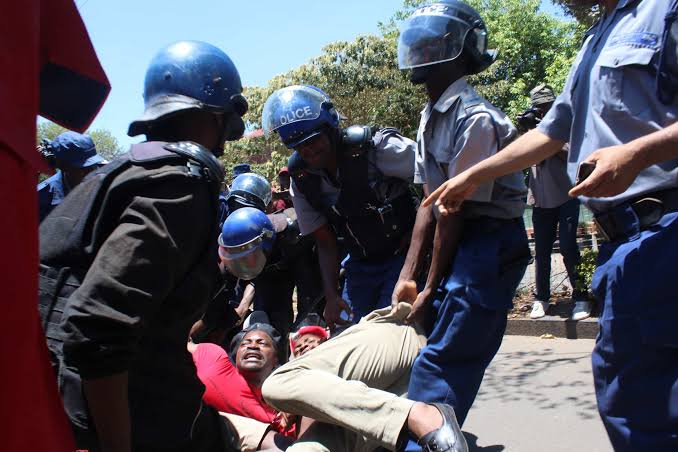By Staff Reporter
Harare – The ruling Zanu PF party has been named the leading perpetrator of human rights violations in Zimbabwe for 2024, according to the Zimbabwe Human Rights Association (ZimRights).
In its latest annual report titled “Rising Still: Community Resilience in the Struggle for Human Rights in Zimbabwe,” ZimRights documented 274 incidents of rights violations affecting 8,279 people—4,457 women and 3,822 men.
The report states that Zanu PF members were implicated in 1,359 violations, the highest of any group.
Local government officials and Zimbabwe Republic Police (ZRP) officers followed, with ZRP alone linked to 4,697 rights violations.
Urban provinces, particularly Harare and Bulawayo, recorded the highest numbers of affected individuals, underscoring the intersection of political tension and economic hardship in these areas.
The most reported violations included restricted access to social services, which affected 4,687 individuals.
Other significant categories were displacement (1,232 people) and inhuman treatment (531 people).
ZimRights noted a growing politicisation of public services and aid, arguing that citizens’ access to rights is increasingly tied to political allegiance.
This, the report warns, undermines equity and democratic accountability.
Beyond documentation, ZimRights said it mobilised rapid response teams and legal aid in multiple regions.
It cited targeted assistance to flood victims in Budiriro and Gokwe, evicted families in Mufakose, Chinhoyi and Mt Darwin, and individuals arrested in politically motivated sweeps in areas like Kariba, Mutare, and Chitungwiza.
“In 2024, as part of human rights monitoring and response action zones, we provided rapid response to Budiriro flood victims (25 families), Mufakose homeless persons (20 families), Mt Darwin (12 families), Chinhoyi (60 families), Gokwe (10 families), Chitungwiza, Epworth and Mabvuku (17 families), 11 activists in Mutasa and Mutare, and 12 families in Kariba,” the report noted.
ZimRights urged authorities to uphold constitutional rights and called for urgent reforms to depoliticise public institutions and social services.



